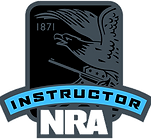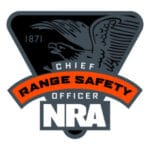To establish a pistol’s or revolver’s dependability, you must remove human error and gather data using your chosen ammo. The reliability of a handgun for self-defense is critical. And by reliable, we mean that when the trigger is pressed, there is a 99.99 percent probability that it will fire and cycle correctly.
Many people assume that a 1,000-round test fire is necessary to demonstrate reliability. It may seem to be the most dependable method of demonstrating reliability. Still, it is essentially a way of wasting money.
Recognize that the ammunition you must establish reliability with is the ammunition you will carry in your pistol for personal defense. Having a gun that functions well with practice ammunition increases the likelihood of working well with carrying ammo.
We cannot, however, depend on chance. All ammunition carried must first pass a reliability check. Furthermore, carrying ammo may cost up to a dollar for every shot.

What Are The Reasons For Handguns Failure?
Modern handguns are often built to withstand frequent usage and many firings. Nonetheless, almost every gun owner will have failures from time to time. Knowing what factors could impair a firearm’s performance is essential for ensuring the user’s safety.
Let’s examine the causes of handgun failures in more detail:
Rusting:
Rusting in handguns may be caused by a variety of catalysts. It may begin internally, like in the barrel, or externally, but by the time you detect it on the outside, it’s most likely also internal to the handgun. Your pistol will rust if exposed to humidity and water vapor in the air, which might happen if you keep it in a damp place or use it outside.
Corrosive ammo, which has a primer that emits salts when lit, may do the same to the interior of your barrel. Because the chemicals are meant to break down tough dirt, applying too much solvent without first rinsing it out may result in corrosion and pitting.
With regular maintenance and careful storage, however, you may avoid these problems. If you use corrosive ammunition, clean your pistol after each use.
Residual Fouling Buildup:
Fouling residue accumulation in the barrel is due to each bullet that travels through your pistol. They leave behind gunpowder remains and trace quantities of lead and copper. The remaining fouling might accumulate in the barrel, impacting your accuracy and possibly the reliability of your handgun.

Failure To Feed (FTF):
Lubricant may go into areas it shouldn’t, particularly if you over-oil your firearm. It may cause an FTF if it gets into the regions that transfer bullets from the magazine to the chamber.
You may keep pulling the trigger all day long, but the bullet will never make it inside the chamber. A regular cleaning routine can assist you in avoiding over-lubrication and ensuring the mechanisms are properly operating.
Failure To Eject (FTE):
Unlike the other two failures, FTE refers to the casing jamming in the barrel of the handgun. It is an annoyance and less harmful than the other two, but it is also avoidable with frequent cleaning.
Failure To Fire:
Failure to fire is a prevalent problem with handguns that aren’t cleaned on a regular basis. If enough residue buildup up on the gun, it may fail to fire a round of ammo when you squeeze the trigger.
It’s a mistake that may be inconvenient at the range or potentially threaten your life if you’re using a pistol for self-defense. There’s also a potential that the live ammunition may explode in the gun, which is quite hazardous. Cleaning minimizes your chances of having a failure to fire when firing greatly.
Double Feed:
In the event of a double feed, two live rounds will try to feed into the chamber simultaneously. Remove the magazine first to fix a double feed. The slide should then be racked to eject both bullets. Insert a new magazine once both bullets have been removed.

Short Stroke:
A short stroke occurs when the gun does not finish a complete cycle after firing a bullet. The cartridge will correctly exit the barrel, but the slide will not have returned all the way, indicating that the gun did not load a fresh round. Typically, there is no evidence that a short stroke has occurred.
Misfire:
When the weapon produces a click instead of a shot after being fired, it is considered a misfire. A defective primer is usually the cause of a misfire. It might potentially be a problem with the gun’s firing pin.
Squib Load:
A squib is a cartridge with insufficient powder charge to fire the bullet through the chamber and out the barrel. As a result, the bullet becomes lodged in the barrel. A squib may endanger you and your gun.
You must understand what occurs when you fire the trigger. A squib will go Pop!, not Bang!, and will most likely feel less recoil than usual. If there is no squib, you may be able to load and fire another round. However, this may seriously harm your gun. Stop firing if you fear you have a squib.

Hangfire:
A hangfire occurs when the firing pin strikes the primer of the bullet before the cartridge fires. For at least 30 seconds, keep your pistol pointing in a safe direction to check whether the bullet goes off. Rack the slide to expel the defective ammunition while safely holding the gun pointing.
Slamfire:
When a fresh round is loaded into the chamber, the bolt return causes the firing pin to strike the primer forcefully enough to allow the cartridge to fire without the trigger being engaged. It is the most potentially lethal malfunction. You should never chamber a round unless the gun’s muzzle points away from you and toward a solid barrier.
Conclusion:
You should now have a solid sense of what may go wrong while handling a live weapon and how to resolve the issue if things don’t go as planned.
Please remember to pay close attention to the squib load and ensure that you understand the risks of firing another round when a squib load occurs. For that reason, while handloading ammo, constantly focuses and be attentive.













